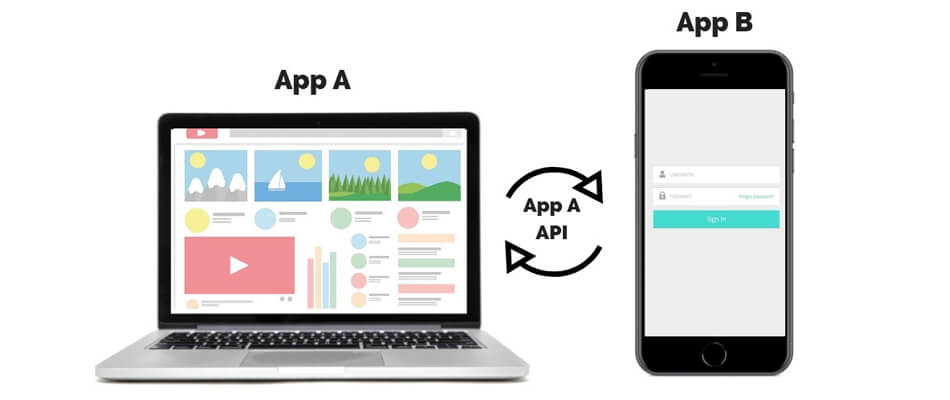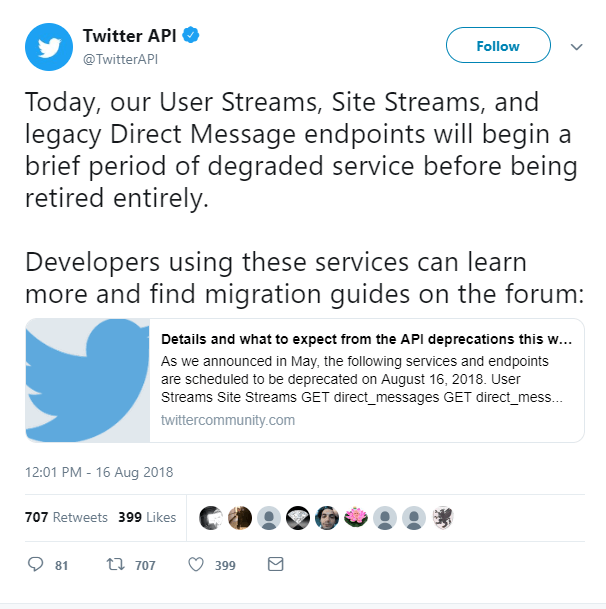Let's Talk !

An API is a relative of its corresponding application. It's a portion of the application's code that gets integrated with other applications and gives the applications a means of exchanging data. APIs give different applications, with intended user crossover an opportunity to forge an enlightened and highly convenient end-user experience.
Our current architecture is supported by over 16,500 different APIs, all of which are responsible for billions of connections.
Here's where we're going if you want to jump ahead:
If you're wondering, what's an API, let's simplify and weed out the abstractions. An API is a relative of its corresponding application. It's a portion of the application's code that gets integrated with other applications and gives the applications a means of exchanging data. APIs give different applications, with intended user crossover an opportunity to forge an enlightened and highly convenient end-user experience.
A neural pathway, a traffic system, you pick the metaphor. Regardless of the one you choose, the API occupies the role of intermediary. Intermediaries settle disputes, transfer information between parties, and open up lines of communication that wouldn't exist otherwise.
APIs are largely responsible for nurturing the user journeys we depend on to guide us through the World Wide Web, facilitating cross-channel engagement and powering the digital economy.
Without APIs we would lose interoperability, devolving to a digital dark age. Our current architecture is supported by over 16,500 different APIs, all of which are responsible for billions of connections. Dissolving the API ecosystem wouldn't shut the door on 16,500 conversations, it would dismantle each sphere of influence, causing planetary disruption.
Well, maybe not quite planetary, but it would certainly change the way we operate.
We integrate APIs to unlock an enlightened interweb. When implementing an API, there are three steps to take: know the technology, know the trends, and make sure you know your target market the way you think you do.
Even if there's an implementation partner in the picture, it's best practice to know the technologies you're exploring. APIs come in many different shapes and sizes, some are free, some are open-source, and some are regulated.
If we think of the internet as a complex web of remote servers, rapidly transmitting data to fulfill user requests, we can think of an API as the part that intercepts requests and tells the server how to respond.

Say we have two applications, App A and App B. App B requests access to App A's API documentation. App A may evaluate how they will benefit from allowing App B to access a portion of their database. If App A sees a benefit, they'll hand over the code to App B.
Now, App A's API maintains a continuous conversation with App B, and the two cater to a shared user base, introducing a new level of convenience for the consumer caught between them.
Every time you log in to a website using your social media profile or pay for an order with PayPal, it's through an API. They're convenience layers.
There is some liability with an API. Both parties are forfeiting some control, for the app integrating the API, they're subjecting their system to a foreign invader and the API owner is opening up their brand to a level of dissonance. Will the API user uphold the branding standards of the API owner? Will the API owner privative the API one day, cutting connections with the API users and eliminating that convenience layer.
Back in August, Twitter decided to disable certain features for third-party apps using their API. Now access to push notifications and automatic timelines come with excessive monthly fees. For apps already dependent on the robust set of free Twitter API features, privatization represented a huge roadblock in their user experience. But what could they do about it? Twitter owns their API, and they can change the rules at any time.

There is an inherent vulnerability with API integrations. The rules and functionality can change, and you will have no say in the new direction. It's like you're renting an apartment and the landlord decides to renovate.
Remaining on top of these trends is paramount to a successful API ecosystem. API trends must be tracked on a case-by-case scale, as well as aerially. Aerially, we know interconnectivity is King right now, and this trend is likely to continue.
How relevant is the data the API provides to your target market? To know this, you must first define your intended user and outline how that intended user will interact with the new connection.
Will it be an additive to their overall experience or a hindrance?
Yelp augments their information with a maps system native to the device its server is accessed through. For requests made from a web browser, Yelp uses the Google Maps API to show the location of whatever business the end-user is searching. On iOS mobile browsers, Yelp switches out Google Maps for Apple's Maps API.

In switching between APIs and integrating with a localization system, Yelp acknowledges the value that a visual brings for end-user experience. Their intended is on-the-go and searching for information on local establishments.
Everything there is to know. We can engineer them, we can integrate them, we can build a project plan that will create something tangible from your vision.
Whatever you need, we're here as a backend partner. Business owners engaging with APIs can be segmented into two categories: the builders and the users. You are either trying to implement or open your platform up to a larger audience through informational exchange. Either way, the end result is always the same: a conversation between formerly isolated systems.
Because we thoroughly enjoy our interconnectivity, APIs are more mainstream than ever. Because our interconnectivity is evolving, inevitably, so are APIs. Odds are your business could benefit from an added data stream. So, when you're ready to propel your legacy system forward, let's get started on that API.
Disclaimer:
Chetu does not affect the opinion of this article. Any mention of a specific software, company or individual does not constitute an endorsement from either party unless otherwise specified. This blog should not be construed as legal advice.
Founded in 2000, Chetu is a global provider of offshore software development solutions and support services. Chetu's specialized technology and industry experts serve startups, SMBs, and Fortune 500 companies with an unparalleled software delivery model suited to the needs of the client. Chetu's one-stop-shop model spans the entire software technology spectrum. Headquartered in Plantation, Florida, Chetu has fourteen locations throughout the U.S. and abroad.
Privacy Policy | Legal Policy | Careers | Sitemap | Referral | Contact Us
Copyright © 2000-2024 Chetu Inc. All Rights Reserved.
